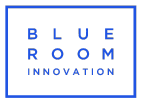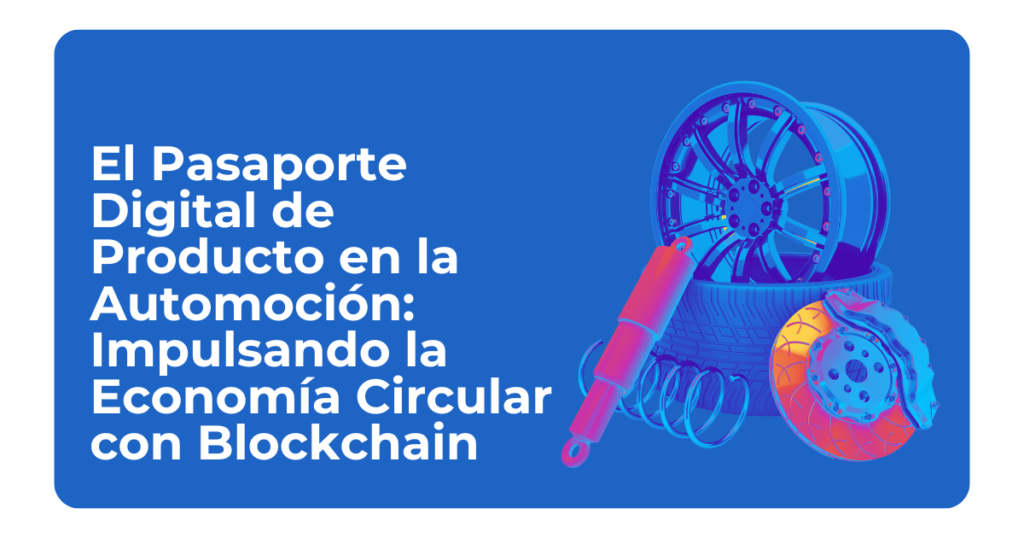

The Digital Product Passport in Automotive: Driving the Circular Economy with Blockchain
In a global context increasingly focused on sustainability, the automotive industry faces the challenge of adapting to a regulatory framework aimed at minimizing its environmental impact and promoting the transition towards a circular economy. Among the most relevant regulatory initiatives are the Proposal for a Regulation of the European Parliament and the Council of July 13, 2023, concerning circularity requirements for vehicle design and the management of vehicles at the end of their life cycle, as well as the Regulation on Ecodesign Requirements for Sustainable Products (ESPR). These regulations stand out for their focus on ensuring durability, reparability, and recyclability from the design stage, establishing new obligations that transform the automotive sector.
What is the Digital Product Passport?
The Digital Product Passport is a technological solution that collects and stores detailed information about a product's composition, origin, and life cycle. In the automotive industry, this passport may include data on recycled materials, manufacturing processes, and potential reuse or recycling options at the end of its life cycle. Implementing this tool aligns with the goals of the circular economy, promoting efficient resource reuse and waste reduction.
Legal Framework: Towards Responsible Waste Management
The ESPR regulatory ESPR proposal could have a broader impact on the automotive industry. This framework introduces ecodesign requirements that directly affect the materials and components used in vehicles, promoting durability, reparability, and recyclability from the start of the manufacturing process. ESPR also drives the creation of digital product passports as a mandatory tool to ensure transparency and traceability throughout the product's life cycle.
Additionally, Regulation (EU) 2023/1542,adopted on July 12, 2023, sets strict requirements for battery management and waste, including the need for traceability throughout their entire life cycle. Directive 2012/19/EU regulates the management of waste electrical and electronic equipment, promoting the recovery and recycling of valuable materials.
These regulations highlight the importance of ensuring transparency in the supply chain and promoting material reuse. In this context, the Digital Product Passport becomes an essential tool for complying with these legal obligations and improving sustainability in the automotive industry.
CarTrack
From Blue Room Innovation, one of the most prominent projects in implementing the Digital Product Passport is CarTrack, an initiative that applies blockchain technology to automate the traceability of waste and recycled parts in the automotive industry. Through the CircularTrust platform, CarTrack ensures transparency and certified origins of recycled materials, promoting an efficient circular economy.
How does CarTrack work?
- Waste tokenization: Waste generated during the production process or at the end of a vehicle's life cycle is tokenized, creating a unique digital record for each part.
- Creation of the Digital Passport: Each recycled part receives a digital passport that includes detailed information about its origin, composition, and possible future uses.
- Transparent traceability: Thanks to blockchain technology, all information is securely and transparently available to all actors in the supply chain.
In collaboration with key partners such as DRA Balear y Adalmo, CarTrack aims to transform the way waste and recycled materials are managed in the automotive industry. This approach not only improves sustainability but also adds value by ensuring compliance with European regulations.
Benefits of the Digital Product Passport
- Regulatory compliance: Facilitates adaptation to European regulations on waste and recycling.
- Transparency and trust: Provides verifiable information about the origin and quality of recycled materials.
- Boost to the circular economy: Promotes efficient resource reuse, reducing dependency on new materials.
- Supply chain optimization: Improves the management of waste and recycled materials, reducing costs and increasing efficiency.
The Digital Product Passport represents a revolution in how resources are managed in the automotive industry. Projects like CarTrack demonstrate that blockchain technology can be a key ally in ensuring traceability, transparency, and sustainability throughout the supply chain. In an increasingly demanding regulatory environment, adopting innovative solutions like these is not only a competitive advantage but a necessity to build a more sustainable future.
Products
Digital Product Passport
Descentralized platforms
Descentralized Identity
Verificable Credentials
About us
Team
Methodology
Our Mission
Connect
Cristòfol Grober 4, local 35
17001 - Girona
info@blueroominnovation.com
Follow us
Copyright © 2024 Blue Room Innovation Privacy Policy - Legal Warning - Cookies Policy